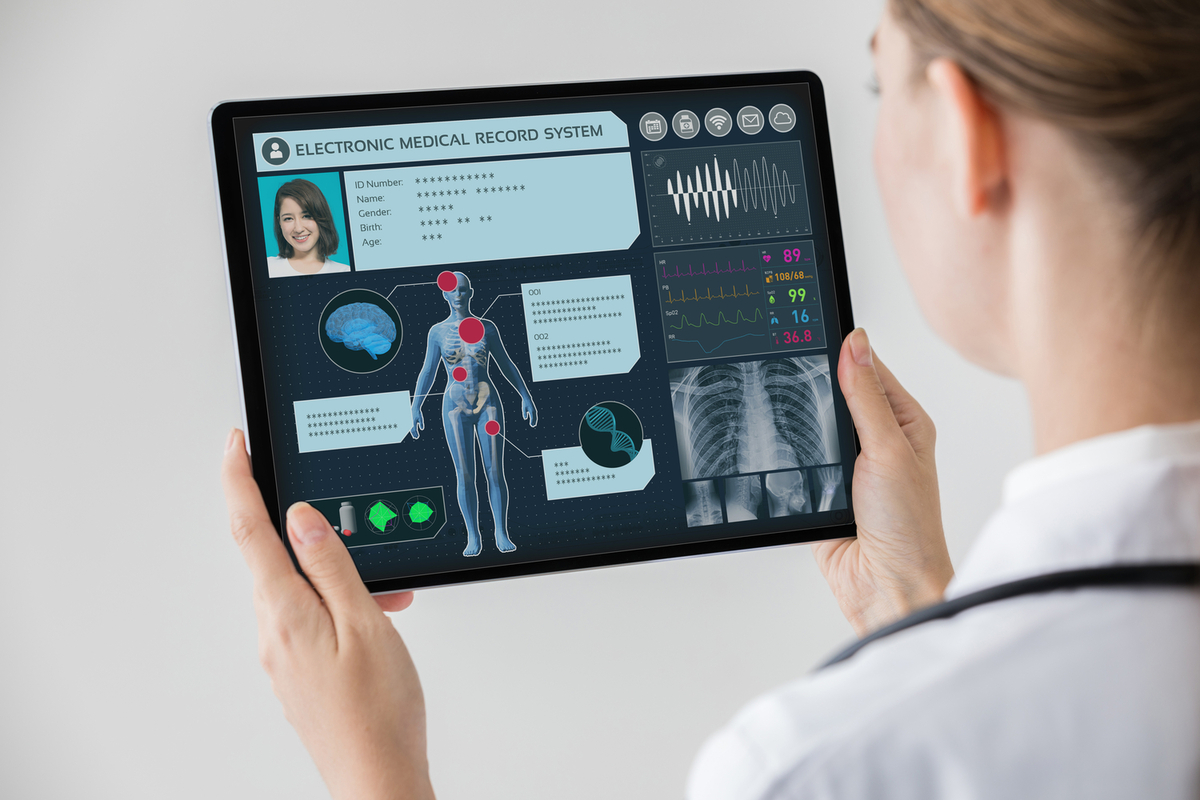The Evolution and Impact of Online Electronic Medical Records

In the digital age, the healthcare industry has witnessed a significant transformation with the advent of online electronic medical records (EMRs). These digital systems have revolutionized the way patient information is stored, accessed, and managed, offering numerous benefits to both healthcare providers and patients. This article delves into the evolution, advantages, and challenges of online EMRs, highlighting their impact on modern healthcare.
Online electronic medical records (EMRs) represent a digital version of the traditional paper-based medical records. They are designed to streamline the documentation process, improve patient care, and enhance the overall efficiency of healthcare services. The journey of EMRs began in the late 20th century, with the initial systems being rudimentary and limited in functionality. However, advancements in technology have led to the development of sophisticated EMR systems that are now integral to healthcare operations worldwide.
Evolution of EMRs
The concept of EMRs emerged in the 1960s, but it wasn’t until the 1990s that they began to gain traction. Early EMR systems were primarily used for administrative purposes, such as billing and scheduling. Over time, these systems evolved to include clinical functionalities, enabling healthcare providers to document patient encounters, track medical histories, and manage treatment plans more effectively.
The 21st century marked a significant turning point for EMRs, driven by the widespread adoption of the internet and advancements in cloud computing. Online EMRs became more accessible, allowing healthcare providers to access patient information from any location with an internet connection. This shift not only improved the efficiency of healthcare delivery but also facilitated better coordination of care among different providers.
Advantages of Online EMRs
-
Improved Patient Care : Online EMRs provide healthcare providers with real-time access to comprehensive patient information, including medical histories, lab results, and treatment plans. This enables more accurate diagnoses and personalized treatment strategies, ultimately improving patient outcomes.
-
Enhanced Efficiency : The digitization of medical records reduces the time and effort required for documentation, allowing healthcare providers to focus more on patient care. Automated features, such as reminders for follow-up appointments and medication alerts, further streamline workflows.
-
Better Coordination of Care : Online EMRs facilitate seamless communication and information sharing among different healthcare providers. This is particularly beneficial for patients with chronic conditions who require care from multiple specialists. Coordinated care ensures that all providers are on the same page, reducing the risk of medical errors and redundant tests.
-
Data Security and Privacy : Modern EMR systems are equipped with robust security measures to protect patient information. Encryption, access controls, and regular audits ensure that sensitive data is safeguarded against unauthorized access and breaches.
-
Cost Savings : By reducing the need for paper-based records and minimizing administrative tasks, online EMRs can lead to significant cost savings for healthcare organizations. Additionally, improved efficiency and better patient outcomes can result in lower healthcare costs in the long run.
Challenges and Considerations
Despite the numerous benefits, the implementation of online EMRs is not without challenges. One of the primary concerns is the initial cost of setting up and maintaining these systems. Healthcare organizations must invest in hardware, software, and training for staff, which can be a significant financial burden, especially for smaller practices.
Another challenge is the potential for data breaches and cyberattacks. While modern EMR systems have robust security measures, the risk of unauthorized access to patient information remains a concern. Healthcare organizations must continuously update their security protocols and educate staff on best practices to mitigate these risks.
Interoperability is another critical issue. Different EMR systems may not always communicate effectively with each other, leading to fragmented patient information. Efforts are being made to standardize EMR systems and improve interoperability, but it remains a work in progress.
Future of Online EMRs
The future of online EMRs looks promising, with ongoing advancements in technology poised to address current challenges and further enhance their capabilities. Artificial intelligence (AI) and machine learning are expected to play a significant role in the evolution of EMRs, enabling predictive analytics, personalized treatment plans, and more efficient data management.
Blockchain technology is also being explored as a means to enhance data security and interoperability. By providing a decentralized and tamper-proof ledger, blockchain could revolutionize the way patient information is stored and shared, ensuring greater transparency and trust in the healthcare system.
Telemedicine is another area where online EMRs are making a significant impact. The integration of EMRs with telehealth platforms allows healthcare providers to offer remote consultations, monitor patients’ health in real-time, and provide timely interventions, all while maintaining comprehensive and up-to-date medical records.
Online electronic medical records have undoubtedly transformed the healthcare landscape, offering numerous benefits in terms of efficiency, patient care, and data security. While challenges remain, ongoing technological advancements and efforts to standardize EMR systems are paving the way for a more integrated and effective healthcare system. As we move forward, the continued evolution of online EMRs will play a crucial role in shaping the future of healthcare, ultimately leading to better patient outcomes and a more efficient healthcare delivery system.



